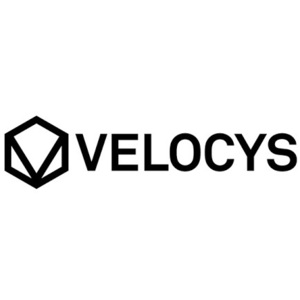Toyo, Velocys execute a collaboration agreement

February 9, 2021
BY Velocys
Velocys plc, the sustainable fuels technology company, is pleased to announce the signing of a collaboration agreement with Toyo Engineering Corp. to start the development of their commercial projects to produce sustainable aviation fuel (SAF) and other renewable fuels in Japan.
The agreement follows on from the successful work already conducted in 2020 between Velocys and Toyo at the biomass-to-jet-fuel demonstration facility in Japan. This included the provision of technical engineering and operational services, as well as the completed construction and delivery of Velocys’ Fischer-Tropsch (FT) technology.
As part of this new collaboration the parties have engaged in the preliminary engineering evaluation of the FT island in a joint effort to deliver a commercial scale biomass-to-jet fuel project in Japan.
Advertisement
Advertisement
As previously announced, Velocys will grant an exclusive right for Toyo to secure and use the license and technical services of the Velocys FT Technology for the commercial plant in Japan. An advance deposit of $4 million was received in 2019 of which $3.5 million remains in escrow, which will be offset against future revenues.
In addition, the collaboration will extend to include the supply of the Velocys FT technology in other SAF, e-Fuels and biomass-to-liquids projects in the Japanese market. This will be led by Toyo, including other partners introduced by Toyo. Subsequent project execution for SAF, e-Fuels and other renewable fuel projects will be delivered by Toyo and their partners, potentially in Japan and other regions, with Velocys providing technical engineering and operational services around the FT technology.
Henrik Wareborn, CEO of Velocys, said, “Velocys has a long-standing relationship with Toyo Engineering and today’s collaboration agreement further supports this commitment. It indicates that Velocys is now firmly in the phase of delivering our commercial scale technology to our clients’ commercial projects. Making our first steps into commercial delivery in the Japanese market strengthens our position in an additional geography to North America and Europe.
“Our clients recognize the importance of our here-and-now technology solution for commercial scale projects, not only greatly reducing Scope 3 life-cycle carbon emissions but also resulting in synthetic fuels with air quality advantages over conventional fuels. We look forward to working with Toyo and their partners to enable the supply of modern low greenhouse-gas synthetic fuels to the Japanese market.
Advertisement
Advertisement
“Whilst there is no immediate material impact on revenue, we are delighted that the collaboration provides a pathway to commercialization in Japan.”
Haruo Nagamatsu, CEO of Toyo, said, “After the successful collaboration with the demonstration plant in Japan, we are pleased to be moving onto the next stage of the plan. The commercial deployment of the integrated technology that has been demonstrated during 2020, including the Velocys FT Technology, is now underway with the first stages of the engineering designs. We are pleased to be working with Velocys and their technical team and look forward to continuing our relationship.”
Related Stories
CountryMark on July 22 celebrated the completion of more than $100 million in upgrades at its refinery in Indiana, including those related to soybean oil storage. The facility produces renewable diesel via coprocessing technology.
ATOBA Energy and Air Moana are partnering to implement scalable solutions for the supply of SAF. The collaboration aims to ensure long-term SAF availability while supporting local initiatives to develop sustainable fuel production in Tahiti.
Neste Corp. on July 24 released second quarter results, reporting record quarterly renewable product sales volumes despite weaker margins. SAF sales were up nearly 80% when compared to the first quarter of 2025.
Valero Energy Corp. on July 24 released second quarter results, reporting a profitable three-month period for its ethanol segment. The renewable diesel segment posted a loss, but the company’s new sustainable aviation fuel (SAF) unit operated well.
The IRS on July 21 published a notice announcing the 2025 calendar-year inflation adjustment factor for the Section 45Z clen fuel production credit. The resulting adjustment boosts maximum the value of the credit by approximately 6%.
Upcoming Events










